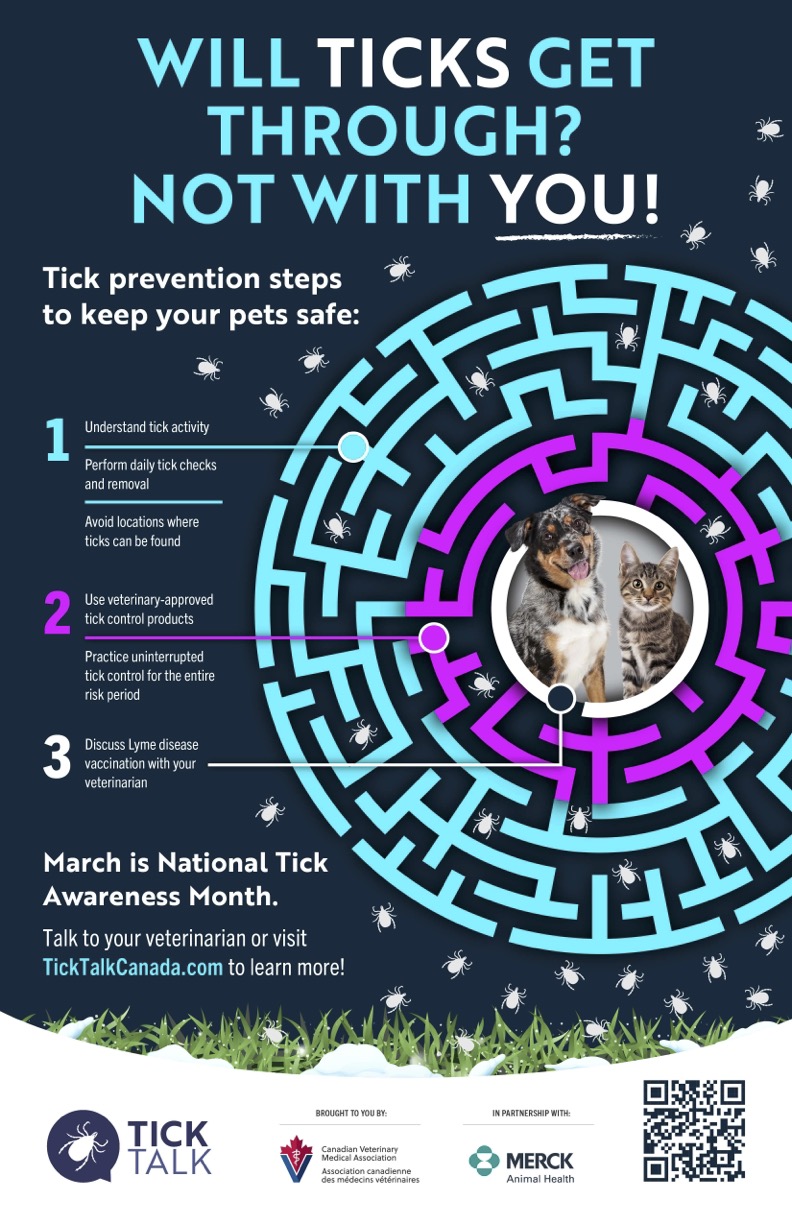Ticks are a real nuisance!
Our veterinary clinic works with our clients and patients to ensure there is an open conversation about tick control and prevention. Across Canada tick borne diseases are becoming a larger issue and we believe it’s important to keep our community in Revelstoke, BC informed on prevention practices.
Even though March is still considered winter, ticks can pose a risk to pets (and their people!).
Ticks can be active even when there is still snow on the ground – and the risk in Canada continues to increase. Fear not! We are here to remind you of the key practices you can do, both at home and with the assistance of your veterinarian in order to protect your pets from ticks.
Steps You Can Take
Performing regular tick checks on your dogs after walks.
Especially looking around the ears, between their toes, and around their neck. Ticks will move on your pet’s body to those hard to reach areas so they can’t be easily scratched off. Doing daily checks on your pets and ensuring you remove the tick immediately can help prevent the spread of tick borne diseases.
It’s important when you are removing a tick that has already been embedded that you remove the buried head.
Not sure how to do it? Watch this video Found a Tick on your Pet…Now what? and talk to your veterinarian. You can participate in Canadian tick monitoring by submitting tick photos to eTick.ca for identification by a professional.
Using veterinary-approved tick prevention products.
In order to receive any tick prevention medication your pet needs to have an up to date annual exam with one of our clinic veterinarians. This means your pet must have been examined within the last year to receive any prescribed tick medication.
Give the clinic a call and we can look up your pet in our system to see if they are approved for tick medication. If we have not seen your pet in the last year then our reception staff will help you schedule an annual exam, at which point we can update any vaccines that are overdue, as well as prescribing deworming and tick/flea prevention.

Did you know….
About 1 in 5 of Blacklegged ticks you encounter in Canada could be carrying the bacteria that causes Lyme disease! This number can be even higher in known risk areas! Visit www.ticktalkcanada.com to learn more about the risks in your province.
Don’t Forget
The second layer of tick protection includes using a veterinary approved tick control medication throughout the tick risk period.
Tick control medications only work if they are given! We all know this is true, but life is busy and sometimes we forget to remember! It is important to administer your veterinary-approved tick control medication as directed by your veterinarian for the entire tick risk activity period. Gaps in protection open the door for ticks!
Call the clinic to discuss the best tick control options for your pet.
There is One More Option
The third layer of tick protection is to discuss whether Lyme disease vaccination is right for your dog.
This is an additional preventative step to take after daily tick checks, and tick prevention medication. Your veterinarian is the best resource to determine if this vaccine is right for your dog.
Don’t hesitate to call the clinic to discuss this as an option.


